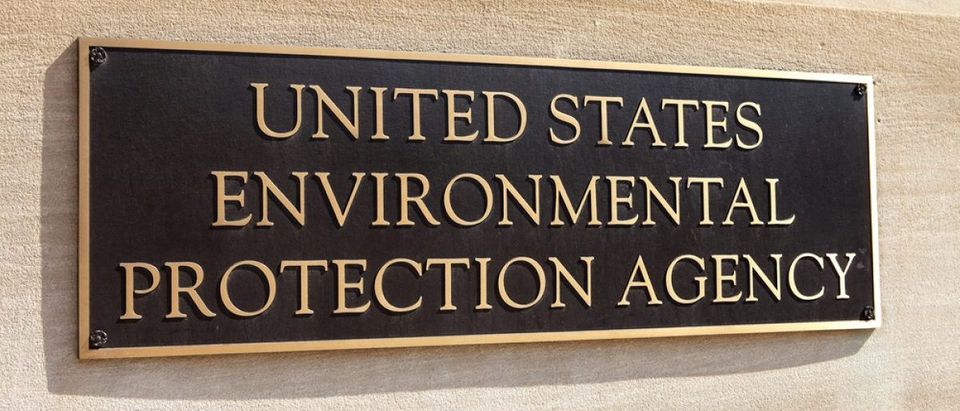President Donald Trump’s Environmental Protection Agency (EPA) rejected environmentalists’ demands to ban a pesticide crucial to U.S. agriculture.
EPA administrator Scott Pruitt formally rejected a petition to ban the pesticide chlorpyrifos Wednesday evening.
During the Obama administration, heavy environmentalist pressure caused the EPA to consider banning chlorpyrifos over concerns that it contaminates drinking water and food. However, the EPA’s own analysis found that “there do not appear to be risks from exposure to chlorpyrifos in food.” The agency’s own website says chlorpyrifos is safe for humans in “standard” amounts.
“We need to provide regulatory certainty to the thousands of American farms that rely on chlorpyrifos, while still protecting human health and the environment,” Pruitt said in a press statement. “By reversing the previous Administration’s steps to ban one of the most widely used pesticides in the world, we are returning to using sound science in decision-making – rather than predetermined results.”
Chlorpyrifos has been used on citrus fruits, apples, broccoli and various other crops since 1965. U.S. farms use about 6 million pounds of chlorpyrifos each year. If nothing had changed legally, the EPA would no longer have allowed incredibly small trace amounts of chlorpyrifos in food, effectively banning the pesticide in the U.S.
Industry groups strongly opposed the EPA’s attempts to ban the pesticide.
“Dow AgroSciences supports U.S. Environmental Protection Agency’s (EPA) decision to deny the petition to revoke U.S. food tolerances and cancel the registration of chlorpyrifos,” the company said in a statement. “Dow AgroSciences remains confident that authorized uses of chlorpyrifos products offer wide margins of protection for human health and safety. This is the right decision for farmers who, in about 100 countries, rely on the effectiveness of chlorpyrifos to protect more than 50 crops.”
Environmentalists pushed heavily for a ban, as did major media outlets — The New York Times, for example, ran an ominous opinion piece titled “Protect Our Children’s Brains.”
The Natural Resources Defense Council and Pesticide Action Network North America, filed a federal lawsuit seeking a national ban on chlorpyrifos over theoretical risks of drinking water contamination and alleged contamination of food by the pesticide. But, the EPA admits that it hasn’t completed its assessment of the pesticide’s effects on drinking water and that “certain science issues” regarding chlorpyrifos are “unresolved.”
The environmental groups also claim that the pesticide interferes with the brain development of fetuses, infants and children. This claim goes against the American Academy of Pediatrics, which states, “the risks of pesticides in the diet are remote, long-term, and theoretical, and there is no cause for immediate concern by parents.” Green objections are largely based on a Columbia study that a toxicologist at Harvard University previously told the The Daily Caller News Foundation was “not even accurate.”
“This is a welcome decision grounded in evidence and science,” Sheryl Kunickis, pesticides director at the U.S. Department of Agriculture (USDA), said in a press statement. “It means that this important pest management tool will remain available to growers, helping to ensure an abundant and affordable food supply for this nation and the world. This frees American farmers from significant trade disruptions that could have been caused by an unnecessary, unilateral revocation of chlorpyrifos tolerances in the United States.”
It is one of the first time environmental groups were unable to convince the EPA to ban a substance through a process of “legal collusion” called “sue and settle.” The EPA has frequently been sued by environmental groups for failing to meet regulatory deadlines, then the agency agreed to settle the dispute with these groups out of court. Settlements are written behind closed doors with no input from affected parties, but still having the full force of law. This effectively allowing the EPA to write its own rules with only environmental groups having input.
Between 2009 and 2012, the EPA chose not to defend itself in over 60 lawsuits from special interest groups, resulting in settlement agreements and more than 100 new EPA regulations.
Send tips to andrew@
All content created by the Daily Caller News Foundation, an independent and nonpartisan newswire service, is available without charge to any legitimate news publisher that can provide a large audience. All republished articles must include our logo, our reporter’s byline and their DCNF affiliation. For any questions about our guidelines or partnering with us, please contact licensing@dailycallernewsfoundation.org.


